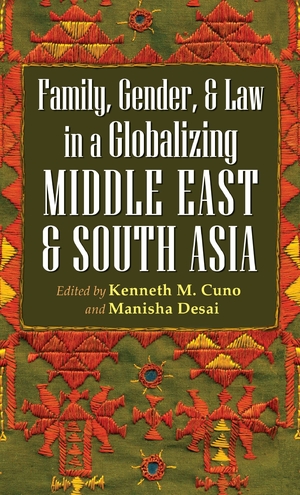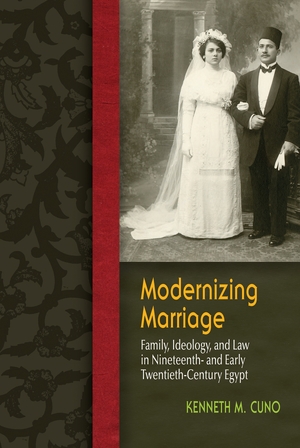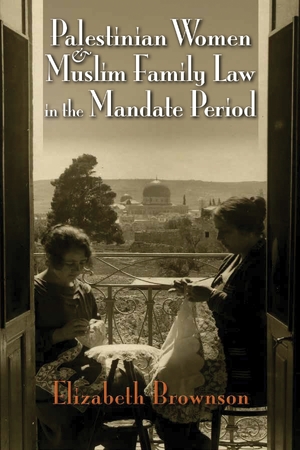"A very timely collection that reveals the desperate need for reform of gender and family law in Muslim, Jewish, and Hindu communities."—Janet Afary, author of Sexual Politics in Modern Iran
"Family, Gender, and Law in a Globalizing Middle East and South Asia presents legal discourses in an accessible and engaging manner. It makes an important contribution to the question of gender, law, and family and provides a welcome addition to interdisciplinary scholarship. . . . A useful resource for those interested in legal reform, gender issues, politics of modernity, women’s movements, transnational feminist organizing, colonialism, and postcolonial studies."—Journal of Middle East Women’s Studies
Description
The essays in this collection examine issues of gender, family, and law in the Middle East and South Asia. In particular, the authors address the impact of colonialism on law, family, and gender relations; the role of religious politics in writing family law and the implications for gender relations; and the tension between international standards emerging from UN conferences and conventions and various nationalist projects. Employing the frame of globalization, the authors highlight the ways in which local and global forces interact and influence the experiences and actions of people who engage with the law.
By virtue of a “south-south” comparison of two quite similar and culturally linked regions, contributors avoid positing “the West” as a modern telos. Drawing upon the fields of anthropology, history, sociology, and law, this volume offers a wide-ranging exploration of the complicated history of jurisprudence with regard to family and gender.
About the Author
Kenneth M. Cuno is associate professor of history at the University of Illinois at Urbana-Champaign. He has published articles in numerous journals including the International Journal of Middle East Studies, British Journal of Middle Eastern Studies, and Islamic Law and Society. He is the author of The Pasha’s Peasants: Land, Society, and Economy in Lower Egypt, 1740–1850.
Manisha Desai is the director of Women’s Studies at the University of Connecticut. She is the author of Rethinking Globalization: Gender and the Politics of Possibilities, coeditor of Women’s Activism and Globalization: Linking Local Struggles to Transnational Politics, and editor of Women’s Issues in Asia and Oceania.
Related Interest
December 2009




